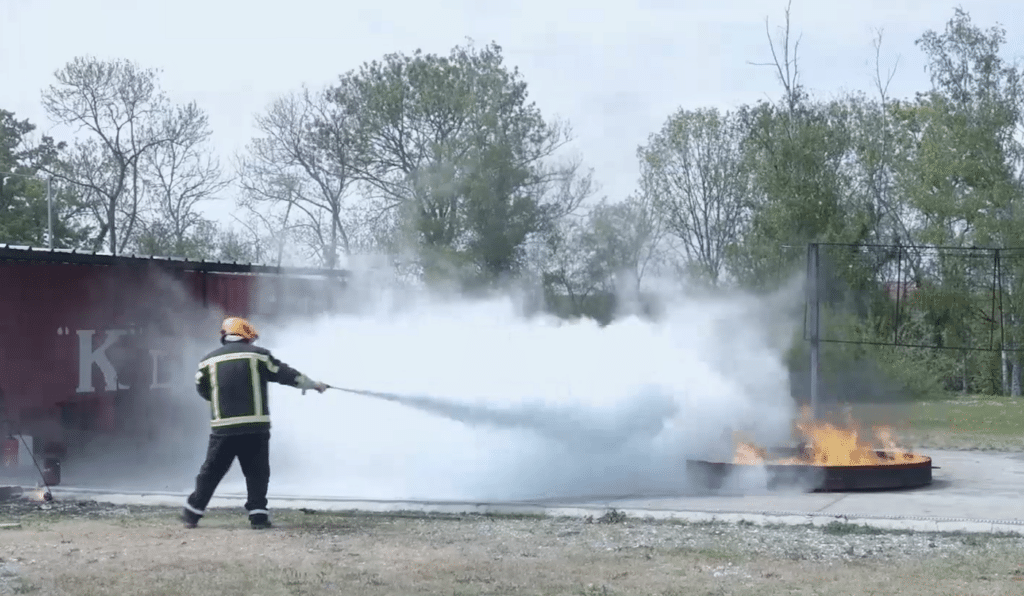When should you use a dry powder extinguisher?
When to use a dry powder extinguisher?
ABC dry powder extinguishers are among the most versatile devices for putting out fires. They are capable of handling many types of fire, making them a popular choice for many environments. Here are the main situations in which it's appropriate to use a dry powder extinguisher.
Types of fires suitable for dry chemical extinguishers
ABC powder extinguishers are effective against fires of the following classes:
- Class A: Fires involving solid materials such as wood, paper and textiles.
- Class B: Fires involving flammable liquids such as petrol, oil and solvents.
- Class C: Fires involving flammable gases such as propane, butane and methane.
Ideal situations for using a dry powder extinguisher
1. Household fires
Powder extinguishers are suitable for use in homes and garages, where different types of materials can catch fire. For example, they can be used to extinguish fires involving :
- Building materials: Wood, drywall.
- Textiles: curtains, furniture.
- Flammable household products: Paints, solvents.
2. Vehicle fires
Powder extinguishers are effective for extinguishing car fires, which can involve solid materials (such as fabric seats), flammable liquids (such as fuel) and electrical components.
3. Industrial and commercial environments
In industrial and commercial environments, where various types of flammable materials may be present, dry chemical extinguishers offer a versatile solution. They are particularly useful in :
- Mechanical workshops: where oil and solvents are commonly used.
- Warehouses: storing a variety of flammable products.
- Factories: With equipment and materials liable to catch fire.
4. Flammable gas fires
Powder extinguishers are also suitable for Class C fires involving flammable gases such as propane and butane, making them useful in contexts where these gases are used or stored.
Why a powder extinguisher?
Benefits
- Versatility: They can be used on Class A, B and C fires.
- Fast-acting: The powder quickly cuts off the fire's oxygen supply and interrupts the chemical reaction.
- Wide Range: They can cover a large area of fire quickly.
Disadvantages
- Residues: Powder leaves residues that can be difficult to clean and potentially damage electronic equipment.
- Health: Powder may be irritating to the respiratory tract and eyes.
Precautions for use
- Ventilation: Use the extinguisher in a well-ventilated area to prevent the build-up of airborne powder.
- Training: Ensure that potential users are trained in the use of dry chemical extinguishers to maximize their effectiveness and safety.
- Maintenance: Check regularly that the extinguisher is in good working order and ready for use.

Read our other articles here! :


